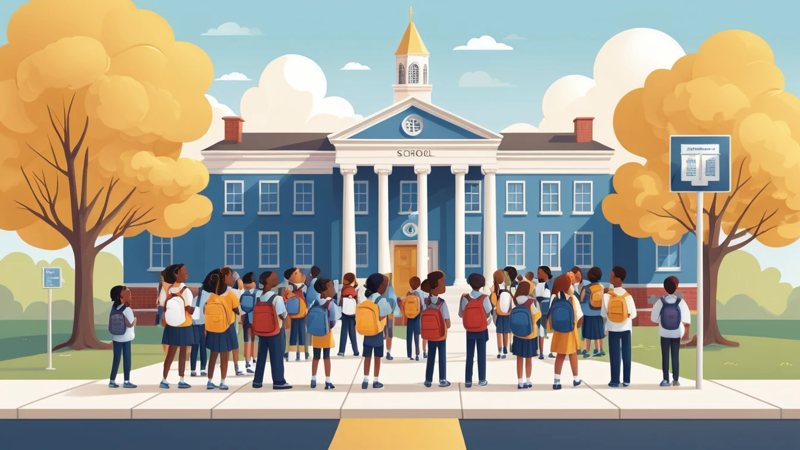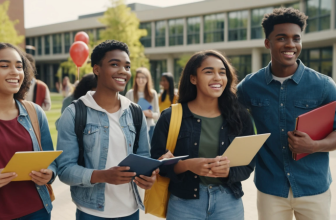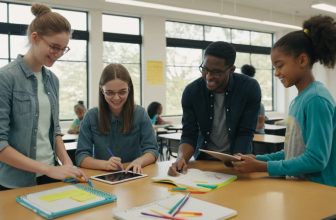
Pros and cons of school vouchers explained simply! Discover how vouchers impact students, parents, and public education in this balanced breakdown.
School vouchers allow parents to use public funds for private or charter schools. Supporters say they promote choice and competition, while critics warn they drain resources from public education. Here’s a detailed look at the real pros and cons of school vouchers.
Pros And Cons Of School Vouchers: Honest Insights For Parents 🎓
Ever wondered if school vouchers could truly give your child a better education—or if they’re just another policy experiment gone too far? 🤔
Here’s the real deal: school vouchers are one of the most debated education topics in America. Some parents see them as a ticket to opportunity, while others fear they could weaken public schools. Let’s unpack what they actually mean, and what benefits and drawbacks come with them.
What Are School Vouchers Exactly? 🎟️
School vouchers are government-funded certificates that parents can use to pay tuition at private or charter schools instead of traditional public schools.
In simple terms, a voucher transfers tax dollars from the public system to the school your child attends, even if it’s a private one.
Why do they exist? The main goal is to give families—especially low-income ones—more freedom to choose the best education for their kids.
The Main Purpose Behind School Vouchers 🎯
The core idea behind vouchers is school choice. Proponents believe that competition will push schools to improve, leading to better educational outcomes for everyone.
It’s a way of saying: “Parents, not zip codes, should decide where their kids go to school.”
But critics argue that while this sounds great in theory, the execution often leaves public schools underfunded and divided.
How Do School Voucher Programs Work? 🏫
Here’s the typical process:
- Parents apply for a voucher through a state or district program.
- The government pays part (or all) of the tuition directly to a private or charter school.
- The child attends that school instead of a public one.
The voucher amount often equals the per-pupil funding that would have gone to the public school.
| Voucher Feature | Explanation | Impact |
| Funding Source | State education budget | Reduces public school funds |
| Eligibility | Varies by income or region | Limited access in some states |
| Tuition Coverage | Partial or full | Depends on program |
| School Types | Private, charter, religious | Expands parent choice |
The Pros Of School Vouchers 👍
Let’s look at the advantages first—because there are real upsides that parents and policymakers highlight.
Promotes School Choice And Freedom 🕊️
One of the biggest benefits is freedom of choice. Parents can pick a school that matches their child’s needs, values, and learning style.
Instead of being stuck in a struggling district, families can explore options like specialized programs, smaller class sizes, or faith-based education.
That’s empowering for parents who feel traditional schools don’t meet their kids’ needs.
Encourages Healthy Competition Among Schools 🏆
Proponents argue that competition sparks improvement. When public schools know they could lose students (and funding), they’re motivated to perform better.
Just like in business, competition can drive quality, innovation, and accountability.
However, this works best when both public and private schools operate under fair, transparent standards.
Can Provide Better Learning Environments 📚
Private and charter schools often have smaller class sizes, more discipline, and specialized programs.
For students who need a more structured or supportive setting, a voucher-funded school can make all the difference.
Many parents report higher satisfaction with their child’s education after switching to a voucher-supported school.
Helps Low-Income Families Access Quality Education 💡
One of the most powerful arguments for vouchers is equity.
Low-income families who can’t afford private tuition now have a way to access schools they otherwise couldn’t.
It levels the playing field, giving children from disadvantaged areas a shot at a better education.
| Benefit For Families | Explanation | Potential Outcome |
| Access to private schools | Removes financial barriers | Better academic support |
| Customized education | Choose specialized programs | Improved engagement |
| Safer environments | Leave unsafe public schools | Increased attendance |
Increases Parental Involvement 👨👩👧
Parents using vouchers are typically more engaged in their child’s education.
They research options, visit schools, and stay involved in academic decisions. This active involvement often leads to stronger student performance and higher satisfaction.
When parents feel empowered, kids benefit too.
The Cons Of School Vouchers 👎
Now for the flip side—because every policy has trade-offs. Critics raise serious concerns about how vouchers impact public education and equality.
Drains Funding From Public Schools 💸
The most common criticism is that vouchers take money away from public schools.
When students leave, funding follows them. This means fewer resources for the students who remain.
Over time, this can create a vicious cycle—public schools lose students, funding drops, and quality suffers.
May Increase Inequality And Segregation ⚖️
Opponents warn that vouchers could deepen social and racial divides.
Families with more resources often have an easier time navigating application systems or covering extra costs not covered by the voucher.
This can leave disadvantaged families behind, reinforcing inequality rather than solving it.
Lack Of Oversight And Accountability 🧐
Private schools that accept vouchers aren’t always held to the same standards as public schools.
That means fewer regulations around testing, curriculum, and teacher qualifications.
Without strong oversight, there’s a risk of poor-quality schools benefiting from taxpayer money.
Limited Availability And Access 🚪
Most voucher programs have strict eligibility rules.
They might prioritize low-income families, students with disabilities, or specific regions.
That’s great for those who qualify—but many middle-class families find themselves stuck in the middle, ineligible for help but unable to afford private tuition.
Can Undermine Public Education’s Purpose 🎓
Public education is built on the idea that every child deserves equal access to quality schooling.
Critics argue that diverting funds to private institutions threatens this principle.
When funding fragments, so does the sense of shared community responsibility for all students.
| Drawback | Explanation | Impact On System |
| Funding loss | Reduces school budgets | Cuts programs and staff |
| Unequal access | Not all families qualify | Widened achievement gaps |
| Limited oversight | Weak accountability | Risk of poor standards |
No Guarantee Of Better Academic Results 📈
Despite the hype, research on student performance under voucher programs is mixed.
Some studies show slight gains in math or reading, while others find no improvement—or even declines.
So, switching schools doesn’t always equal better learning outcomes.
Hidden Costs For Families 💰
Even with a voucher, private school tuition can exceed what’s covered.
Parents may still need to pay for books, uniforms, transportation, or extracurriculars.
These hidden expenses can add up, limiting the real-world accessibility of vouchers.
Religious And Political Concerns ⛪
Many voucher-eligible schools are religious. That raises debates about the separation of church and state.
Should taxpayer money fund religious education? Some argue yes—others strongly disagree.
It’s a sensitive issue that adds another layer to the voucher debate.
Rural Families Get Left Behind 🌾
Vouchers are often less useful in rural areas, where private school options are limited or nonexistent.
Even if parents have vouchers, they might not have a practical alternative nearby.
This means urban families benefit more, deepening regional disparities.
Potential For Mismanagement Or Fraud 🚨
Because oversight varies, there’s potential for abuse in voucher programs.
Cases of schools misusing funds, falsifying attendance, or offering low-quality education have occurred.
Without strong accountability measures, taxpayer money can be wasted instead of helping students.
Balancing The Debate: Can Vouchers And Public Schools Coexist? ⚖️
The real challenge is finding balance.
Many experts suggest hybrid systems—where vouchers exist but don’t undercut public schools.
Strong oversight, equitable funding formulas, and transparent accountability could make both systems work together instead of against each other.
What Parents Should Consider Before Choosing A Voucher Program 💬
Before applying, weigh these key questions:
- Will the voucher cover full tuition or just part of it?
- Is the private school accredited and reputable?
- How far is the school from home, and are transportation costs manageable?
- What programs or support systems does it offer your child?
Making an informed choice matters just as much as having the choice itself.
Future Of School Vouchers In The U.S. 🔮
The future of school vouchers will depend on policy direction, public support, and results.
As education costs rise and parents demand flexibility, more states are experimenting with voucher-like systems, such as Education Savings Accounts (ESAs).
Still, debates about funding fairness and accountability won’t disappear anytime soon.
Conclusion: Weighing The Trade-Offs 🎯
At the end of the day, school vouchers aren’t a one-size-fits-all solution.
They can open doors for some families—but close them for others.
If implemented carefully, with strong safeguards and equity in mind, vouchers could complement public education. But without balance, they risk widening gaps instead of closing them.
The key is finding a model that prioritizes students, not systems. ❤️
FAQs About School Vouchers
- Are school vouchers good or bad for public schools?
It depends on the program. Some argue they push schools to improve; others say they drain funding from the public system. - Do school vouchers improve student performance?
Results are mixed. Some students thrive in new environments, but overall test score improvements are inconsistent. - Who benefits most from school vouchers?
Low-income families in struggling districts often benefit most, especially when programs are well-funded and transparent. - Can vouchers be used for religious schools?
Yes, in many states they can. However, this raises debates about using public funds for religious education. - What states have school voucher programs?
Many states, including Florida, Indiana, and Arizona, offer them—each with unique eligibility rules and funding limits.




